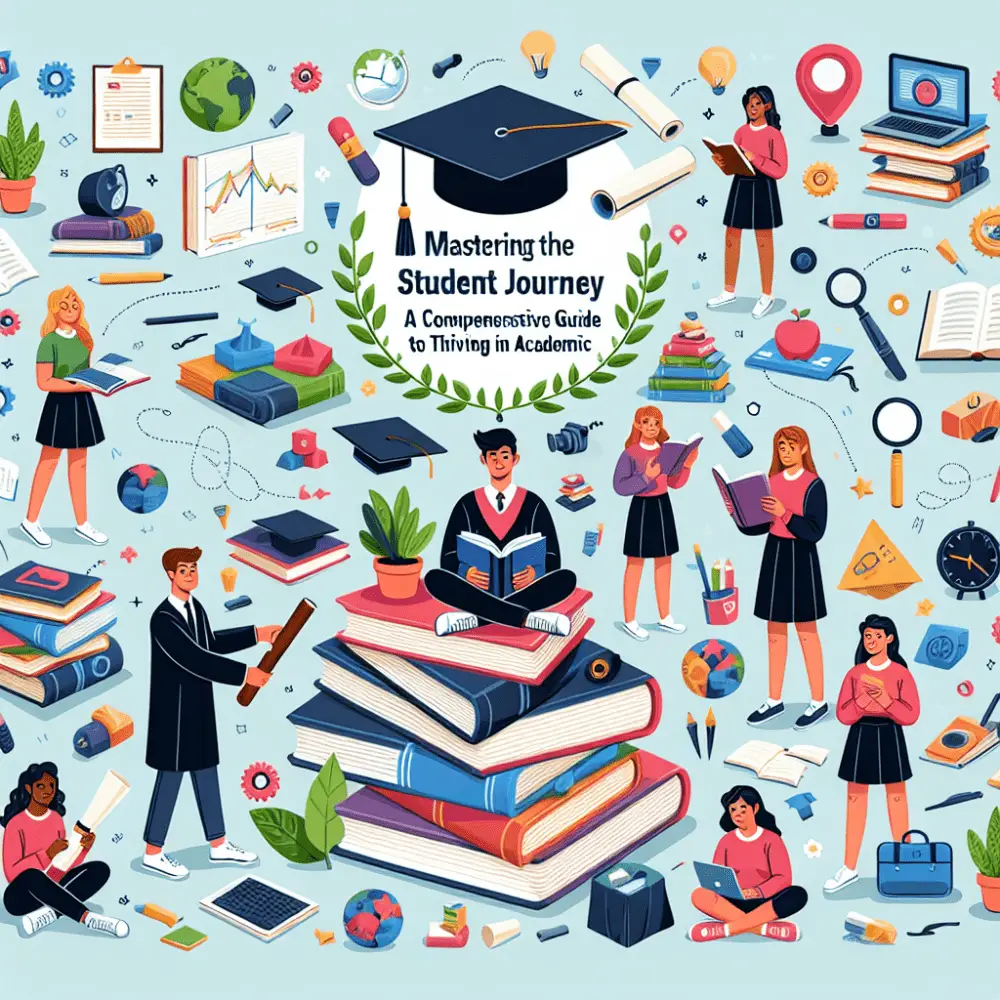
Embarking on the journey of academia can be simultaneously exciting and overwhelming. Whether you are a high school student preparing for college or a graduate student pursuing an advanced degree, navigating through the challenges and complexities of academic life requires careful planning, persistence, and resourcefulness. This comprehensive guide aims to provide valuable insights and strategies to help students thrive academically, emotionally, and socially throughout their educational journey.
In this guide, you will discover essential tips on time management, effective studying techniques, building meaningful connections with professors and peers, maintaining a healthy work-life balance, managing stress and anxiety, leveraging technology for academic success, and much more. Embracing these strategies will empower students to not only succeed academically but also develop crucial skills that will serve them well beyond their educational pursuits.
Time Management: Maximizing Productivity
The Importance of Prioritization: One of the keys to thriving in academia is mastering time management skills. With numerous assignments, exams, and extracurricular activities vying for attention, it is crucial to prioritize tasks based on their importance and deadlines. Creating a visual schedule or using digital productivity tools can assist in effectively allocating time.
Creating Realistic Study Plans: The ability to balance academic commitments with personal obligations is vital for success. Develop realistic study plans that allow for breaks and avoid cramming sessions at the last minute. Breaking down larger tasks into smaller manageable chunks helps maintain focus and reduce overwhelm.
The Art of Effective Studying
Finding Optimal Learning Environments: Discovering the ideal studying environment is essential for maximizing productivity. Experiment with different settings such as quiet libraries, cafes, or designated study spaces to identify what works best for you. Avoid distractions like social media and prioritize concentration.
Active Learning Techniques: Passive reading and highlighting may not always be the most effective study approach. Engaging in active learning techniques like summarizing information in your own words, creating concept maps, or teaching the material to a friend can enhance understanding and retention.
Social Connections: Building a Support Network
Connecting with Professors: Building relationships with professors can be invaluable throughout your academic journey. Take advantage of office hours, engage in discussions, and seek guidance on coursework or research projects. Professors often serve as mentors who can provide valuable insights and recommendations.
Cultivating Peer Relationships: Developing connections with fellow students is equally important. Joining student organizations, participating in group study sessions, or engaging in extracurricular activities related to your interests not only fosters friendships but also provides opportunities for collaboration and intellectual growth.
Maintaining Well-being: Balancing Academics and Life
Prioritizing Self-Care: Taking care of your physical and mental well-being is crucial for long-term success. Prioritize activities like exercise, getting enough sleep, eating nutritious meals, and engaging in hobbies that bring you joy. Remember to take regular breaks from studying to recharge your mind.
Managing Stress and Anxiety: Academic life can sometimes be stressful. Developing effective stress management techniques such as deep breathing exercises, mindfulness meditation, or talking to a counselor can help alleviate anxiety levels during challenging times.
Leveraging Technology for Academic Success
Organizational Tools: Utilize digital tools and apps to stay organized, keep track of assignments and deadlines, and manage your academic workflow. Calendar apps, to-do lists, and note-taking applications can assist in streamlining your academic responsibilities.
Online Resources: Take advantage of online educational resources such as e-books, scholarly databases, interactive tutorials, and educational platforms to enhance your learning experience. These resources can support your coursework and provide additional insights on various subjects.
Frequently Asked Questions (FAQ)
Q: How can I improve my time management skills?
A: Prioritize tasks based on importance and deadlines, create realistic study plans with designated breaks, and consider using digital productivity tools or visual schedules.
Q: What are some effective studying techniques?
A: Find optimal learning environments free from distractions, engage in active learning techniques like summarizing information in your own words or teaching the material to others.
Q: How important is building relationships with professors?
A: Building relationships with professors can provide valuable guidance and mentorship throughout your academic journey. Office hours and engaging in discussions are great ways to connect with them.
Q: How do I maintain a healthy work-life balance?
A: Prioritize self-care activities like exercise, getting enough sleep, eating nutritious meals, engage in hobbies that bring you joy. Develop stress management techniques such as deep breathing exercises or talking to a counselor when needed.
Q: What role does technology play in academic success?
A: Utilize organizational tools like calendar apps or note-taking applications. Take advantage of online resources such as e-books or educational platforms to enhance your learning experience.












